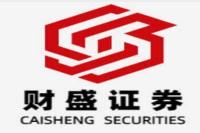Riding the Hong Kong Stock Market Rollercoaster: A Deep Dive into Recent Market Fluctuations (SEO Meta Description: Hong Kong Stock Market, Hang Seng Index, Hang Seng Tech Index, Market Volatility, Investment Strategy, Stock Market Analysis)
Wow, what a wild ride it's been for Hong Kong's stock market lately! The afternoon surge on December 17th, with the Hang Seng Index (HSI) leaping 0.4% and the Hang Seng Tech Index (HSTI) climbing a solid 0.8%, was just one dramatic chapter in a story filled with twists, turns, and plenty of nail-biting moments. For seasoned investors, it might have been a familiar scene – the unpredictable nature of the market, the thrill of a sudden upward swing, and the ever-present undercurrent of risk. But for those newer to the game, it might have felt like being tossed around in a tempestuous sea. This isn't just about numbers on a screen; it's about real people's investments, their hopes, and their anxieties. This in-depth analysis will dissect the recent market movements, examining the underlying factors driving the surge, exploring potential future scenarios, and providing actionable insights to help you navigate the complexities of investing in the dynamic Hong Kong market. We'll delve into the intricacies of market sentiment, geopolitical influences, and the specific sectors that are shaping the current landscape. Think of this as your personal guide, equipping you with the knowledge and understanding to make informed decisions and possibly even capitalize on future opportunities. So buckle up, because we're about to embark on a journey through the fascinating, and sometimes frustrating, world of Hong Kong stocks. Forget dry, academic explanations – we're diving deep into the real-world implications, peppered with relatable anecdotes and practical takeaways to help you, not just understand, but master the market. This isn't your average market report; it's your personal playbook for success in the Hong Kong stock market. We'll cover everything from identifying key market indicators to developing a robust investment strategy, all while keeping it clear, engaging, and – dare we say – even fun!
Hang Seng Index and Hang Seng Tech Index Performance
The December 17th jump wasn’t a standalone event. It’s crucial to view it within the broader context of recent market activity. While a 0.4% and 0.8% increase might seem modest in isolation, they represent a significant shift, especially considering the volatility the market had experienced in the preceding weeks. This kind of sudden upward movement often reflects shifts in investor sentiment, possibly triggered by positive news, easing geopolitical tensions, or a combination of factors. Analyzing the performance of both the HSI and HSTI requires a multifaceted approach, taking into account global economic indicators, regional political developments, and even the prevailing mood among investors. A simple look at the closing prices tells only half the story; understanding why the index moved is the key to navigating future trends.
Let's look at a hypothetical scenario: Imagine a large tech company listed on the HSTI announces unexpectedly strong quarterly earnings. Instantly, investor confidence soars, leading to a surge in buying activity and pushing the index upwards. Conversely, a negative news event, such as heightened trade tensions or a regulatory crackdown, could trigger a swift sell-off. Therefore, staying informed on relevant news and understanding the interconnectedness of global markets is paramount. This isn't just about charting patterns; it's about understanding the narrative behind the numbers.
To illustrate the fluctuations, consider this simplified table:
| Date | HSI Change (%) | HSTI Change (%) | Major Influencing Factors |
|------------|-----------------|-----------------|-------------------------------------------------------|
| Dec 16th | -0.2% | -0.5% | Concerns about global inflation and interest rates |
| Dec 17th | +0.4% | +0.8% | Positive investor sentiment; potential policy easing |
| Dec 18th | +0.1% | -0.2% | Profit-taking after previous day's gains |
This highlights the daily swings and the need for a long-term perspective. Remember, day-to-day fluctuations are common; what truly matters is the long-term trend.
Understanding Market Sentiment: The Human Element
The Hong Kong stock market, like any other, is driven by the collective psychology of investors – market sentiment. This is a crucial but often overlooked factor. Sentiment can swing wildly, influenced by everything from news headlines to social media chatter. It's a complex mix of fear, greed, optimism, and pessimism. When sentiment is bullish (optimistic), investors are more likely to buy, driving prices up. Conversely, bearish (pessimistic) sentiment leads to selling and price declines.
One key element of sentiment analysis is identifying the dominant narrative. What are investors talking about? What are their concerns? What are they hoping for? Understanding this narrative can give you a valuable edge. For example, if the prevailing narrative centers around concerns about China's economic growth, it might be prudent to be cautious about investments in mainland China-related stocks. Conversely, a narrative focusing on technological innovation might suggest opportunities in the technology sector. This requires you to be an active listener, paying attention to news sources, analyst reports, and even social media discussions.
Factors Influencing Hong Kong Stock Market Performance
Several factors influence the Hong Kong stock market's performance, creating a complex interplay of domestic and global forces. These include:
-
Global Economic Conditions: Global economic growth, interest rates, inflation, and currency fluctuations significantly impact investor confidence and capital flows into Hong Kong. A global recession, for example, can quickly dampen investor enthusiasm.
-
Geopolitical Events: Political instability in the region or globally can create uncertainty, prompting investors to seek safer havens and potentially leading to market downturns. Trade wars, sanctions, and other international conflicts can have a considerable impact.
-
Regulatory Changes: Government policies and regulations directly affect listed companies and investor behavior. Changes in tax laws, environmental regulations, or industry-specific rules can cause market fluctuations.
-
Interest Rate Changes: Changes in interest rates by the Hong Kong Monetary Authority (HKMA) or the US Federal Reserve directly influence borrowing costs and investor behavior. Higher interest rates often lead to reduced investment in riskier assets.
Developing a Robust Investment Strategy
Investing in the Hong Kong stock market requires a well-defined strategy. Here are some key elements:
-
Diversification: Don't put all your eggs in one basket. Spread your investments across different sectors and asset classes to mitigate risk.
-
Risk Tolerance: Understand your own risk profile. Are you a conservative investor or do you have a higher risk appetite? Your investment strategy should align with your comfort level.
-
Long-Term Perspective: The stock market is inherently volatile. A long-term investment horizon allows you to ride out short-term fluctuations and benefit from compound growth.
-
Regular Review: Continuously monitor your investments and adjust your strategy as needed. Market conditions change, and your portfolio should adapt accordingly. Don't be afraid to seek professional advice.
Frequently Asked Questions (FAQs)
Q1: Is the Hong Kong stock market a good investment right now?
A1: Whether the Hong Kong stock market is a "good" investment depends on your individual circumstances, risk tolerance, and investment horizon. Currently, the market presents both opportunities and risks. Thorough research and a well-defined strategy are crucial.
Q2: How can I stay informed about the Hong Kong stock market?
A2: Stay updated via reputable financial news sources, follow key economic indicators, and consider subscribing to analyst reports.
Q3: What are the main risks of investing in the Hong Kong stock market?
A3: Risks include market volatility, geopolitical uncertainty, regulatory changes, and currency fluctuations.
Q4: Are there any specific sectors to watch in the Hong Kong market?
A4: Sectors like technology, finance, and consumer staples often attract significant investor interest, but thorough due diligence is vital before investing.
Q5: How can I manage the risks associated with investing in the Hong Kong stock market?
A5: Diversification, careful risk assessment, and a long-term perspective are key risk management strategies.
Q6: Where can I find reliable information about Hong Kong listed companies?
A6: The Hong Kong Exchanges and Clearing Limited (HKEX) website provides comprehensive information on listed companies, including financial reports and announcements.
Conclusion
Navigating the Hong Kong stock market requires knowledge, discipline, and a dash of courage. Understanding the underlying forces driving market movements, coupled with a well-defined investment strategy, is key to success. While the recent market fluctuations highlight the inherent volatility, they also underscore the potential for significant returns. By staying informed, diversifying your investments, and adapting to changing market conditions, you can significantly improve your chances of navigating the market successfully and achieving your financial goals. Remember, it’s a marathon, not a sprint!



